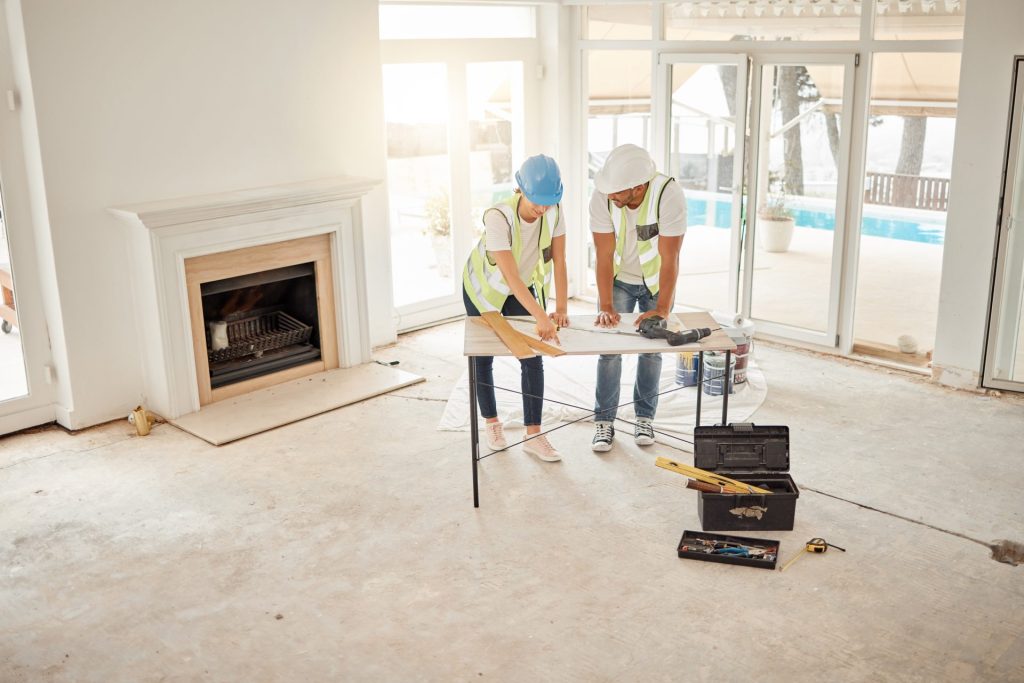What Are Common Drywall Issues That Warrant Repair or Replacement?
Drywall is a popular material for building interior walls and ceilings today due to its affordability and durability. It’s an ideal replacement for traditional plaster, making home construction faster and easier.
However, it easily gets damaged by water, dents, and age-related wear and tear. General contractors in the Delaware Valley often witness the following common problems in drywalls and rectify them depending on various factors:
Cracks in the Drywall
Small cracks can cause inconveniences, but large ones indicate significant house issues beyond what you can see. Professional drywall contractors in the Delaware Valley can assess the damage based on the size and location to determine whether you should repair or replace the drywall.
Some cracks result from improper taping between drywall sheets. The materials are often not large enough to cover an entire room. Installation entails using several sheets and patching them up with specialty drywall tape and mud to create a flawless surface. Improper taping can create cracks along the seams.
Local drywall contractors in the Delaware Valley area can rectify the issue by fixing the installation tape correctly. However, if the cracks extend to the windows and interior and exterior doorways, it could be a sign that you’re dealing with a structural problem requiring a more detailed approach to solving it.
Nail Pops
Nails or screws can pop when the drywall settles or shifts. They mostly happen due to improper installation, but even careful installation can cause a few nail pops. They can cause small, circular bulges in the drywall as the nail or screw works its way out.
The damage may not be dangerous but can be unsightly and distracting. Experienced drywall contractors in the Delaware Valley can do some quick repairs to fix the blemishes and make your drywall look as good as new.
Holes in the Walls
While drywalls are durable and sturdy, exposure to various environments and hazards can damage them. The following can cause holes in drywalls:
- Falling furniture, picture frames, or shelves
- Children playing
- Pets scratching
Whether the holes are large or small, a professional can help fix them, depending on their size and extent of damage. Avoid repairing drywall holes independently, as the process can be stressful and time-consuming. Drywall professionals have the right tools, knowledge, and experience to repair or replace damaged drywall.
Water Damage
Drywall is made from highly absorbent material that can allow water to leech up the wall much higher than the flood line. As it soaks in water, the drywall becomes mushy, and its structure becomes compromised, even after it has dried out. The moisture can create the ideal mold environment shortly after water damage.
The first sign of water damage in drywall is typically discoloration, with the material turning brown as it becomes wet. The material may also feel soft, and the air quality may be reduced due to the mold, putting your household at risk of diseases.
Working with reliable drywall installers in Delaware Valley is the best way to resolve water damage in drywall. Covering the drywall with a coat of mud may only provide a temporary solution that will cost more later.
Should I Repair or Replace Drywall After Damage?
Deciding whether to repair or replace damaged drywall can be tough because while some damage may be severe, it may not be so bad that it needs replacement. Consult experienced drywall contractors in the Delaware Valley and have them assess the damage professionally. They’re in a better position to advise you whether to repair or replace the drywall.
When to Repair
Drywall repair often entails replacing the damaged area with a new drywall piece by cutting a part big enough to cover the damaged area and a bit of the surrounding area. The next step is to trace the piece around the damaged area to determine how much to cut out of the existing wall for a perfect fit of the new drywall piece.
Fixing the new piece requires joint tape, compound, and a new paint coat to blend it flawlessly. Depending on the repair area’s size, the new piece may require additional backing. Some drywall damages that may do well with repair are:
- Small holes that are less than half an inch
- Small cracks that are less than 1/8-inch wide
- Small dents created by blunt objects
Consider having repairs done professionally for a well-done job and an even look.
When to Replace
Some types of damages require a replacement of the drywall:
- Large holes
- Large cracks
- Discolored drywall
- Water damage
- Bulges
- Mold
Repairing some drywall damages is relatively easy, and you can handle the project yourself. However, drywall replacement requires the input of professional drywall contractors in the Delaware Valley. The project needs skills and expertise to address the source of damage, especially where water damage is the problem.
Repair or Replace Your Damaged Drywall With the Help of an Experienced Drywall Contractor
Drywall damage can be unappealing to the eyes. In extreme circumstances, it can pose a hazard if the damage involves water and moisture. Knowing when to repair or replace the drywall can be challenging, primarily if you cannot determine the damage’s source or extent. Skilled general contractors can evaluate the problem and advise whether to repair or replace the drywall.
Hauser Contractors hosts Delaware Valley Specialists in Drywall Contracting who can provide the expertise you need in repairing or replacing your drywalls. We can provide quality artistry, ensure we work on the project on time, and deliver exceptional results. Our team is dedicated to saving you time and money while ensuring your satisfaction. Call us at (610) 510-6020 to book a consultation or request a FREE estimate.


 CALL US NOW
CALL US NOW EMAIL US NOW
EMAIL US NOW










